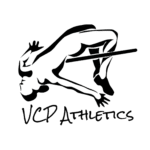Whether it’s running or pursuing her education, Kathleen Abrams doesn’t take shortcuts. The junior distance runner for South Carolina track and field and cross country is studying biomedical engineering, and while she tries to find the career path that fits her, she recently took part in a summer research experience, which may just help her discover what she does and does not want to do with her life.
“It’s called a research experience for undergraduates,” Abrams said. “They are typically nine-to-twelve week opportunities over the summer, so I went to the University of Akron. I decided to go there because I have some family up there, and I wanted to be close to them this summer. It was on polymer science. It involved a lot of chemistry and biology. Polymers are a type of material, like long chains called monomers. Plastic is a polymer for example. It’s a materiel science that I’m working with.
“The experience really helped me learn and narrow down things that I like. There were things I thought I liked, but as I did more of it, the yield was not as a high. Sometimes it’s helpful to find out things you don’t want to do, so it makes you one step closer to figuring it out.
“We had a lot of lectures in the first week in polymer chemistry and polymer physics. After the first two weeks, we worked in the lab. I worked about eight or nine hours per day. It was like a fulltime job, Monday through Friday. We did have some other activities scheduled. One day we toured a plant to see where they were making plastics. I really liked that.”
As a student-athlete, Abrams is no stranger to having a full schedule.
“Biomedical engineering is so mental, and while running is mental, there’s a lot of physical challenges,” Abrams said. “They’re both challenging in different ways.”
Her summer experience also required her to create a presentation based on her research, which also provide some valuable lessons.
“I learned a lot about communicating your research to others,” Abrams said. “That was kind of hard. I definitely enjoyed my experience. I liked seeing what grad school would be like. I was the only undergraduate student in my lab, so I was working with a bunch of graduate students who were working toward their Ph.D. One person defended his dissertation while I was there. It was cool to see the process of that.”
Abrams’ educational experience was a lot to unpack, but it helped prepare her for her future by finetuning…

